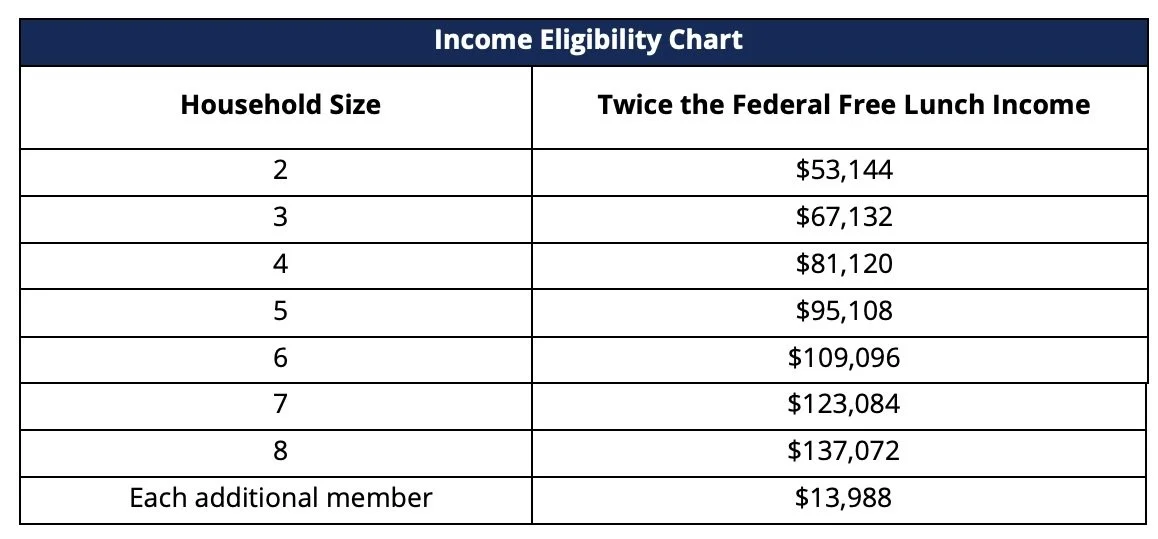Tennessee Education Savings Account Participants Mostly Outperform Economically Disadvantaged Students in Their Home Districts
Stock photo of a teacher helping a student (Photo by the Tennessee Department of Education)
A new report from the Tennessee Department of Education shows students taking part in the state’s initial income-based program to provide funding for children to attend private school are mostly outperforming economically disadvantaged students in their home districts.
ESA Income limitations (Chart provided by the Tennessee Department of Education)
Last school year, 3,693 students in Nashville, Memphis, and Chattanooga received assistance for private school expenses through the Education Savings Account (ESA), frequently referred to as school vouchers.
Unlike the recently launched Education Freedom Scholarship program, all ESA participants must meet income requirements of no more than twice the eligibility for the federal free lunch program.
ESA Participants Outperform Peers in ELA
All students in tested grades who take part in the ESA program are required to take the annual Tennessee Comprehensive Assessment Program (TCAP) assessment in math and English language arts (ELA).
The Tennessee Firefly compared the scores ESA students posted on last spring’s TCAP in these subjects to the scores the state reported earlier this year for economically disadvantaged students.
In that comparison, ESA students in Nashville, Memphis, and Chattanooga all achieved proficiency at higher rates than economically disadvantaged students in ELA, and Memphis ESA students additionally outperformed them in math.
Economically disadvantaged students in Nashville and Chattanooga slightly outperformed ESA students in their communities in math.
Not all ESA participants qualify as economically disadvantaged under state guidelines, but the comparison does provide one way to measure how students in the program are doing compared to students who could qualify to participate.
Private School Differences
State education officials pointed out in their report that ESA students may additionally be at some disadvantage on the TCAP test compared to their public-school peers, as not every private school teaches to the state assessment.
“TCAP tests measure student mastery of Tennessee’s Academic Standards, and non-public schools are not required to teach these same standards. Although overlap exists between standards at public and non-public schools, the sequencing and pacing of standards can be significantly different. This means students who take the TCAP in a non-public school may be assessed on content they have not covered in that given school year,” wrote education officials in the report.
Opponents of the program have questioned the financial impact it could have on local school districts that are losing students to private schools, and whether tax dollars should be used to fund private school expenses.
The Department of Education says it found near universal support from participants. A state survey of ESA families in the 2024-25 school year found 99 percent had already applied or were planning to reapply for this school year.
“This program is amazing! As a single mother working 3 jobs to support a higher education for my daughter, this program has assisted us tremendously! I'm so grateful and hope someday I can pay it forward and help others in need,” said an unidentified mother of an ESA student quoted in the report.




